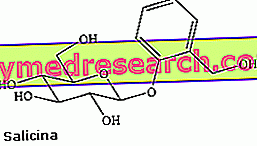
What is Sovaldi - sofosbuvir and what is it used for?
Sovaldi is an antiviral medicine that contains the active substance sofosbuvir . It is used in the treatment of chronic hepatitis C (protracted) in adults. Hepatitis C is an infectious disease that affects the liver, caused by the hepatitis C virus. Sovaldi is used in combination with other medicines.
How is Sovaldi used - sofosbuvir?
Sovaldi can only be obtained with a prescription and treatment should be started and monitored by a doctor experienced in the management of patients with chronic hepatitis C. Sovaldi is available as 400 mg tablets. The recommended dose is one tablet once a day, to be taken with food. Sovaldi should be used in combination with other medicines to treat chronic hepatitis C, including ribavirin or peginterferon alfa and ribavirin. There are more varieties (genotypes) of the hepatitis C virus and the duration of treatment with Sovaldi depends on the viral genotype and the medicines given in combination with Sovaldi. For more information, see the package leaflet.
How does Sovaldi - sofosbuvir work?
The active substance in Sovaldi, sofosbuvir, blocks the action of an enzyme called "RNA Polymerase RNAdependent (NS5B)", present in the hepatitis C virus, which is essential for viral replication. This action interrupts the multiplication of the hepatitis C virus and the infection of new cells. Sovaldi acts against all genotypes of the hepatitis C virus.
What benefit has Sovaldi - sofosbuvir shown during the studies?
Sovaldi has been studied in four main studies involving a total of 1 305 patients with hepatitis C. In all four studies the main measure of effectiveness was the number of patients in whom, 12 weeks after the end of therapy, the blood test showed no evidence of hepatitis C virus.
- The first study was conducted on 327 previously untreated patients with genotypes 1, 4, 5 or 6 of hepatitis C virus, in which Sovaldi was administered in combination with two other antiviral medicines, peginterferon alfa and ribavirin, for 12 weeks. In this study, 91% (296 of 327) of patients tested negative for hepatitis C 12 weeks after the end of therapy.
- The second study was performed on 499 patients with genotype 2 or 3 hepatitis C virus infection, not previously treated. In this study, treatment with Sovaldi and ribavirin given for 12 weeks was compared with a treatment based on peginterferon alfa and ribavirin administered for 16 weeks. Treatment with Sovaldi was equally effective (67% of patients - 171 out of 256 - tested negative) of peginterferon treatment (67% of patients - 162 out of 243).
- The third study was performed on 278 patients with infection with hepatitis C virus of genotype 2 or 3, who could not take or who did not want to undergo interferon therapy. In this study, treatment with Sovaldi and ribavirin was compared with placebo (a dummy treatment), both given for 12 weeks; it was found that 78% (161 of 207) of patients treated with Sovaldi and ribavirin tested negative for hepatitis C 12 weeks after the end of therapy, while none of the 71 patients treated with placebo was exempted from the virus.
- The fourth study was conducted on 201 patients with hepatitis C virus (genotypes 2 or 3) who had not responded to previous interferon therapy or where the infection had recurred. The study compared the combination of Sovaldi and ribavirin taken for 12 weeks with the combination of Sovaldi and ribavirin taken for 16 weeks. In this study, 50% (51 out of 103) of patients treated with Sovaldi and ribavirin for 12 weeks tested negative for hepatitis C, while 71% (70 out of 98) of patients tested negative for the same test treated for 16 weeks.
Further studies have shown that the administration of Sovaldi in combination with ribavirin in liver transplant patients decreased the risk of infection with the new organ hepatitis C virus, that Sovaldi is also effective in patients with hepatitis C and HIV infection and that the outcome in patients with a genotype 3 hepatitis C virus infection could be improved by extending the treatment to 24 weeks.
What is the risk associated with Sovaldi - sofosbuvir?
The most common side effects of Sovaldi in combination with ribavirin and peginterferon alfa were similar to the commonly reported effects with ribavirin or peginterferon alfa and included fatigue (tiredness), headache, nausea and insomnia. Sovaldi did not cause increases in the frequency or severity of these side effects. For the full list of side effects and limitations, see the package leaflet.
Why has Sovaldi - sofosbuvir been approved?
The Agency's Committee for Medicinal Products for Human Use (CHMP) decided that Sovaldi's benefits are greater than its risks and recommended that it be approved for use in the EU. The CHMP considered that the addition of Sovaldi to standard treatment is beneficial for patients. Sovaldi eliminates the infection without the patient having to take peginterferon alfa or with short cycles of this medicine (which can cause serious side effects and is not well tolerated by most patients). The committee also took into account the fact that, if given before a liver transplant, Sovaldi - taken in combination with ribavirin - can prevent a re-infection of the liver, which occurs almost always in the absence of treatment and that has a poor prognosis. Furthermore, the resistance of the virus to Sovaldi is very rare and the medicine is effective against all types of hepatitis C virus. As for safety, the committee noted that although there is limited information for some patient populations, including subjects with decompensated liver cirrhosis (in which the liver is damaged or no longer works properly), no specific undesirable effects have been identified with Sovaldi and the effects observed are mainly due to combination therapy with ribavirin or interferons.
What measures are being taken to ensure the safe and effective use of Sovaldi - sofosbuvir?
A risk management plan has been developed to ensure that Sovaldi is used as safely as possible. Based on this plan, safety information has been included in the summary of product characteristics and the package leaflet for Sovaldi, including the appropriate precautions to be followed by healthcare professionals and patients.
More information on Sovaldi - sofosbuvir
On 16 January 2014, the European Commission issued a marketing authorization for Sovaldi, valid throughout the European Union. For more information on Sovaldi therapy, read the package leaflet (also part of the EPAR) or contact your doctor or pharmacist. Last update of this summary: 01-2014.



